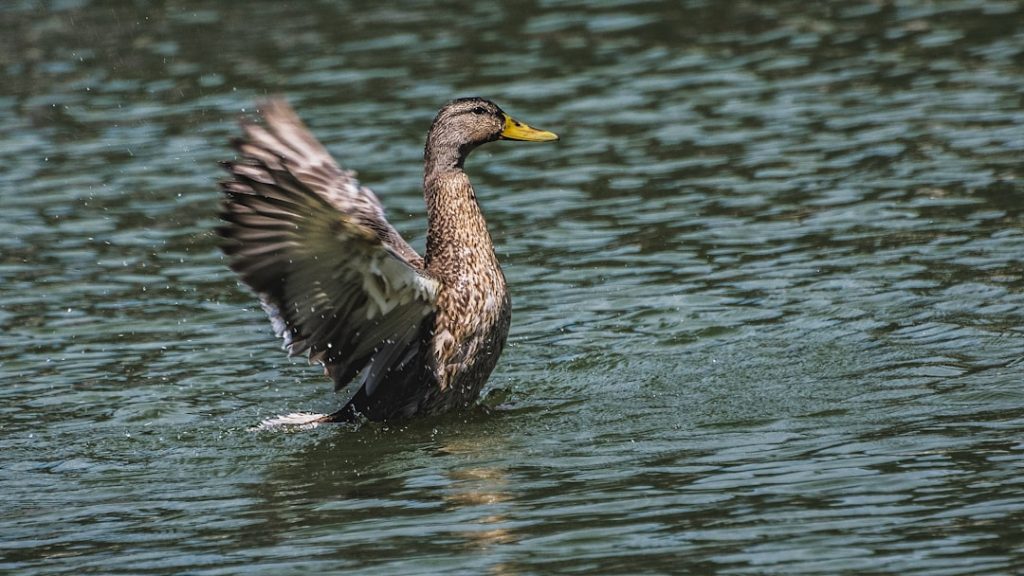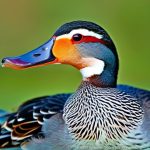Egg type duck breeds are a group of ducks that are specifically bred for their high egg production. These ducks are known for their ability to lay a large number of eggs, making them a popular choice for farmers and homesteaders looking to raise ducks for their eggs. Unlike meat type duck breeds, which are bred for their meat production, egg type duck breeds are focused on producing a high quantity of eggs, making them a valuable addition to any poultry operation.
Egg type duck breeds come in a variety of sizes, colors, and temperaments, making them a versatile option for those looking to add ducks to their flock. Whether you are a small-scale farmer or a backyard homesteader, egg type duck breeds can be a valuable addition to your poultry operation. In this article, we will explore the characteristics of egg type duck breeds, popular breeds within this category, the benefits of raising egg type duck breeds, as well as the care and maintenance required for these ducks. We will also discuss the challenges of raising egg type duck breeds and provide some final thoughts on the value of these ducks for egg production.
Table of Contents
Key Takeaways
- Egg type duck breeds are specifically bred for their high egg production, making them a popular choice for small-scale and backyard poultry farmers.
- Characteristics of egg type duck breeds include good egg-laying ability, hardiness, and adaptability to various climates and environments.
- Popular egg type duck breeds include the Khaki Campbell, Indian Runner, and Welsh Harlequin, known for their high egg production and friendly dispositions.
- Raising egg type duck breeds can provide a sustainable source of fresh eggs, natural pest control, and nutrient-rich manure for gardening and farming.
- Care and maintenance of egg type duck breeds involve providing proper housing, nutrition, and access to water, as well as regular health checks and predator protection.
Characteristics of Egg Type Duck Breeds
Egg type duck breeds are known for their prolific egg-laying abilities, with some breeds capable of laying over 300 eggs per year. These ducks are typically smaller in size compared to meat type duck breeds, making them easier to manage and care for. They come in a variety of colors, including white, black, and various shades of brown, and can have different feather patterns and markings, adding to the visual appeal of these ducks.
In terms of temperament, egg type duck breeds are generally docile and friendly, making them a great option for those looking to raise ducks as pets or for small-scale egg production. They are also known for their hardiness and adaptability to different climates, making them suitable for a wide range of environments. Additionally, egg type duck breeds are efficient foragers and can help control pests in the garden or on the farm, making them a valuable addition to any sustainable farming operation.
Overall, egg type duck breeds are characterized by their high egg production, small size, variety of colors and patterns, friendly temperament, adaptability, and efficiency as foragers. These characteristics make them a popular choice for those looking to raise ducks primarily for egg production.
Popular Egg Type Duck Breeds
There are several popular egg type duck breeds that are favored by farmers and homesteaders for their high egg production and other desirable traits. One of the most popular egg type duck breeds is the Khaki Campbell, known for its exceptional egg-laying abilities, with some individuals capable of laying up to 300 eggs per year. Khaki Campbells are also known for their calm and friendly temperament, making them a great choice for those looking to raise ducks as pets or for small-scale egg production.
Another popular egg type duck breed is the Indian Runner, which is known for its upright stance and distinctive walking style. Indian Runners are excellent layers, with some individuals capable of laying up to 200 eggs per year. They come in a variety of colors, including white, fawn, and black, and are known for their active and curious nature, making them an entertaining addition to any flock.
The Welsh Harlequin is another popular egg type duck breed, known for its beautiful silver or gold plumage and excellent egg-laying abilities. Welsh Harlequins are known for their calm and friendly temperament, making them a great choice for those looking to raise ducks as pets or for small-scale egg production.
Other popular egg type duck breeds include the Buff Orpington, Cayuga, and Magpie. Each of these breeds has its own unique characteristics and traits that make them valuable additions to any poultry operation focused on egg production.
Benefits of Raising Egg Type Duck Breeds
There are several benefits to raising egg type duck breeds, making them a valuable addition to any poultry operation. One of the primary benefits of raising egg type duck breeds is their high egg production. These ducks are capable of laying a large number of eggs per year, providing a valuable source of protein and nutrition for those looking to raise ducks for eggs.
Egg type duck breeds are also known for their efficient foraging abilities, helping to control pests in the garden or on the farm. This can reduce the need for chemical pesticides and promote a more sustainable and natural approach to pest control.
Additionally, egg type duck breeds are generally easy to care for and maintain, making them a great option for those new to raising ducks or poultry in general. They are hardy and adaptable to different climates, making them suitable for a wide range of environments.
Furthermore, raising egg type duck breeds can provide an opportunity for small-scale farmers and homesteaders to generate additional income through the sale of eggs. With their high egg production and relatively low maintenance requirements, egg type duck breeds can be a profitable addition to a diversified farming operation.
Overall, the benefits of raising egg type duck breeds include high egg production, efficient pest control through foraging, ease of care and maintenance, adaptability to different climates, and potential for additional income through egg sales.
Care and Maintenance of Egg Type Duck Breeds
Proper care and maintenance are essential for ensuring the health and well-being of egg type duck breeds. Providing a suitable living environment is crucial, including access to clean water for drinking and bathing, as well as shelter from predators and inclement weather. Ducks also require access to a balanced diet that meets their nutritional needs, including a mix of commercial feed and fresh greens or insects foraged from the environment.
Regular health checks are important for monitoring the overall well-being of egg type duck breeds. This includes checking for signs of illness or injury, as well as providing routine vaccinations and parasite control as needed. Additionally, maintaining clean living quarters and providing adequate space for exercise and social interaction can help prevent stress and behavioral issues in ducks.
It is also important to consider the specific needs of each breed when caring for egg type duck breeds. For example, some breeds may have specific dietary requirements or housing preferences based on their size or temperament. Understanding these breed-specific needs can help ensure that each individual duck receives the proper care and attention they require.
Overall, proper care and maintenance of egg type duck breeds involve providing a suitable living environment, access to a balanced diet, regular health checks, clean living quarters, adequate space for exercise and social interaction, and consideration of breed-specific needs.
Challenges of Raising Egg Type Duck Breeds

While there are many benefits to raising egg type duck breeds, there are also some challenges that farmers and homesteaders may encounter when caring for these ducks. One common challenge is predator control, as ducks are vulnerable to attacks from predators such as foxes, raccoons, and birds of prey. Providing secure housing and implementing predator deterrents can help mitigate this risk.
Another challenge is managing water sources, as ducks require access to clean water for drinking and bathing. This can be particularly challenging in colder climates where water sources may freeze during the winter months. Providing heated waterers or regularly breaking ice can help ensure that ducks have access to water year-round.
Disease management is another challenge when raising egg type duck breeds. Ducks can be susceptible to various diseases and parasites that can impact their health and egg production. Implementing biosecurity measures, providing routine vaccinations, and practicing good hygiene can help prevent the spread of disease within the flock.
Additionally, managing the waste produced by ducks can be a challenge, as it can contribute to environmental pollution if not properly managed. Implementing waste management practices such as composting or utilizing the waste as fertilizer can help minimize the environmental impact of raising egg type duck breeds.
Overall, while there are challenges associated with raising egg type duck breeds such as predator control, managing water sources in colder climates, disease management, and waste management; these challenges can be effectively managed with proper planning and proactive measures.
Conclusion and Final Thoughts on Egg Type Duck Breeds
In conclusion, egg type duck breeds are a valuable addition to any poultry operation due to their high egg production, efficient pest control abilities through foraging, ease of care and maintenance, adaptability to different climates, and potential for additional income through egg sales. Popular egg type duck breeds such as Khaki Campbells, Indian Runners, Welsh Harlequins, Buff Orpingtons, Cayugas, and Magpies offer a variety of characteristics and traits that make them suitable for different farming or homesteading needs.
While there are challenges associated with raising egg type duck breeds such as predator control, managing water sources in colder climates, disease management, and waste management; these challenges can be effectively managed with proper planning and proactive measures. Overall, raising egg type duck breeds can be a rewarding experience that provides a valuable source of eggs, pest control assistance, potential income generation, and an enjoyable addition to any farm or homestead. With proper care and attention to their specific needs, egg type duck breeds can thrive and contribute positively to a diversified poultry operation.
If you’re interested in learning more about egg-type duck breeds, you might also want to check out this informative article on the best heater for a chicken coop. Proper heating is essential for maintaining the health and productivity of your poultry, including ducks. Understanding the different options available can help you make the best choice for your coop. You can read the full article here.
FAQs
What are egg type duck breeds?
Egg type duck breeds are a group of duck breeds that are specifically bred for their high egg production. These ducks are known for laying a large number of eggs, making them popular among farmers and homesteaders.
What are some common egg type duck breeds?
Some common egg type duck breeds include the Khaki Campbell, Indian Runner, Welsh Harlequin, and Golden 300 Hybrid. These breeds are known for their high egg production and are popular choices for those looking to raise ducks for eggs.
How many eggs can egg type duck breeds lay?
Egg type duck breeds can lay anywhere from 200 to 300 eggs per year, depending on the breed and individual bird. This makes them a valuable choice for those looking to raise ducks for egg production.
What are the benefits of raising egg type duck breeds?
Raising egg type duck breeds can provide a sustainable source of eggs for consumption or sale. Additionally, ducks are known for their pest control abilities and can help keep insect populations in check on a farm or homestead.
What are some considerations for raising egg type duck breeds?
When raising egg type duck breeds, it’s important to provide them with a suitable living environment that includes access to water for swimming and foraging opportunities. Additionally, proper nutrition and predator protection are important factors to consider.
Meet Walter, the feathered-friend fanatic of Florida! Nestled in the sunshine state, Walter struts through life with his feathered companions, clucking his way to happiness. With a coop that’s fancier than a five-star hotel, he’s the Don Juan of the chicken world. When he’s not teaching his hens to do the cha-cha, you’ll find him in a heated debate with his prized rooster, Sir Clucks-a-Lot. Walter’s poultry passion is no yolk; he’s the sunny-side-up guy you never knew you needed in your flock of friends!







